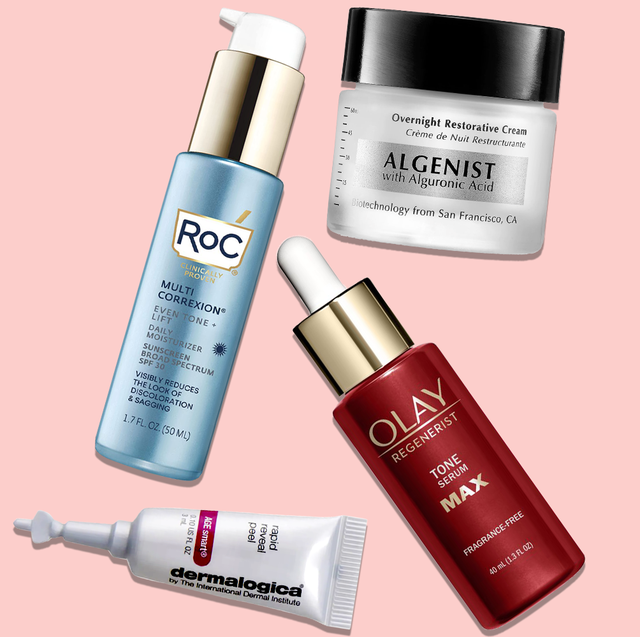To find the best face serum for you,”choose a formula that is appropriate for your skin type and texture, as well as the outcomes you want to achieve,” Dr. Mitchell advises. Here are the GH Beauty Lab and dermatologists’ general guidelines:
✔️ For glowing skin: Seek out brightening and exfoliating ingredients like vitamin C, niacinamide and glycolic acid. “Vitamin C is a great option for those looking for more luminous skin and can reduce the appearance of uneven skin tone and hyperpigmentation,” Dr. Zenovia says.
✔️ For dry skin: Ingredients like hyaluronic acid, vitamin E and ceramides are great “hydrating components that absorb easily into skin,” Dr. Mitchell says. Squalane is another effective hydrator, adds Dhaval G. Bhanusali, M.D., dermatologist and founder of Hudson Dermatology and Laser Surgery in New York City.
✔️ For anti-aging and wrinkles: Dermatologist go-to’s for smoothing lines and reducing age spots include retinol, peptides and glycolic acid. “Bakuchiol is a newer ingredient that also can provide benefit and is generally well-tolerated,” Dr. Bhanusali says. In addition, “antioxidants, including vitamins (C, E, and B3 or niacinamide), polyphenols, and flavonoids, slow the breakdown of collagen by lowering the concentration of free radicals in your skin,” Dr. Mitchell notes.
✔️ For sensitive skin: Choose serums made without fragrance, which can irritate. Opt for those made with hydrating ingredients (hyaluronic acid, vitamin E, ceramides) “to repair the skin’s barrier,” Dr. Zenovia says, and/or soothers such as oat extracts, aloe, green tea and chamomile.
✔️ For oily skin: Dr. Bhanusali recommends the active ingredients salicylic acid and niacinamide, which can help reduce excess oil.
✔️ For acne-prone skin: “Salicylic acid and glycolic acid can help clear pores” and minimize breakouts, Dr. Mitchell says.
Xhicboutique.com – Discover this Product & More at Discount Prices!
Source link
